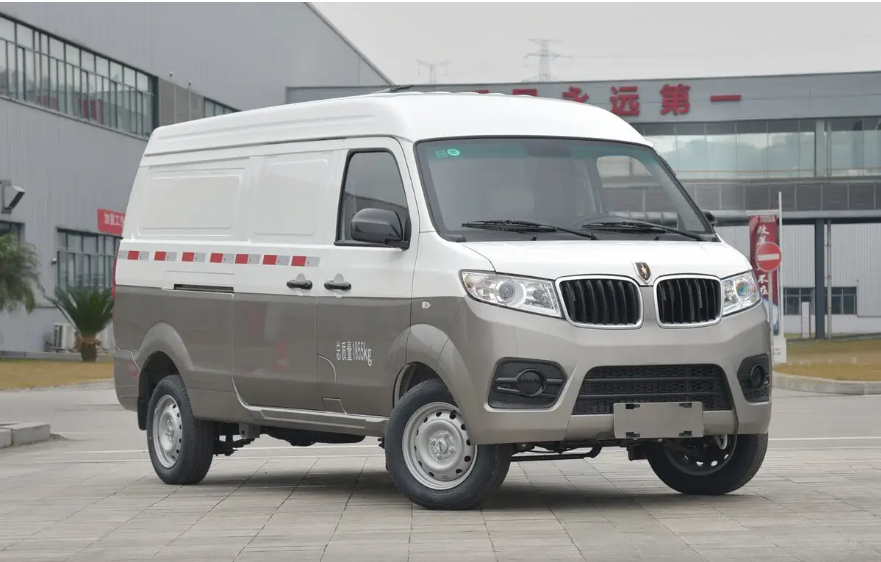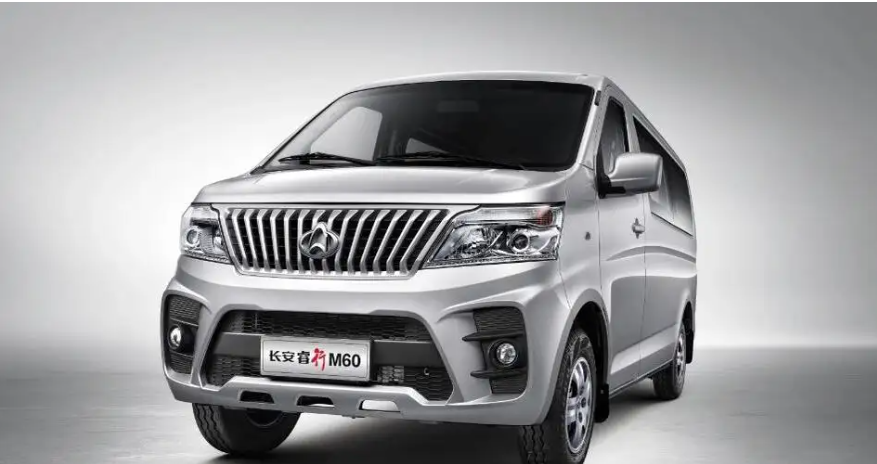Cost Savings Through Electric Van Ownership
Reduced Fuel Expenses vs Traditional Vans
Electric vans pave the way for substantial fuel savings compared to traditional vans. The main reason behind this is the lower cost of electricity per kilowatt-hour compared to gasoline or diesel per gallon. As the U.S. Department of Energy highlights, charging an electric van can be up to 60-70% more affordable than fueling a traditional vehicle, aligning with the sustainability goals and economic interests of modern businesses. Over the lifespan of an electric van, businesses can save thousands of dollars. These savings grow even larger with rising fuel prices and as more companies shift towards sustainable energy options. This financial advantage makes electric van ownership an increasingly enticing proposition for businesses prioritizing both cost-efficiency and eco-conscious operations.
Lower Maintenance Requirements
Electric vans boast fewer moving parts compared to their internal combustion engine (ICE) counterparts, resulting in lower maintenance requirements and costs. According to the LLC's Electric Vehicle Institute, electric vehicles can incur up to 40% less in maintenance expenses due to their simplified mechanics. This is largely because components common in ICE vehicles, like oil filters and fuel injectors, are non-existent in electric vans. This reduction in mechanical complexity translates into fewer needs for servicing and part replacement, thereby reducing the frequency and cost of maintenance-related expenditures. For businesses, this means fewer disruptions and lower long-term maintenance budgets, which collectively boost operational efficiency.
Long-Term Operational Budget Predictability
Owning electric vans allows businesses to benefit from predictable long-term operational budgets, largely due to stable charging costs. In an environment where fuel prices are perpetually rising, electric vans offer a reliable solution for cost forecasting and budgeting. Many enterprises opt for fixed-rate charging plans, which further enhances cost control and predictability in their operations. This ability to forecast operating expenses accurately empowers businesses to allocate resources more effectively and develop financial strategies that are both sustainable and resilient in the face of fluctuating market conditions. Electric vans, therefore, not only offer immediate cost benefits but also provide strategic financial stability over the long haul.
Emissions Compliance and Brand Reputation
Zero Tailpipe Emissions for Low-Emission Zones
Electric vans offer a significant advantage in compliance with strict emissions regulations by producing zero tailpipe emissions. This attribute makes them ideal for accessing urban low-emission zones without incurring fines or restrictions. Moreover, as cities increasingly combat air pollution, the importance of electric vans is magnified as they contribute to a cleaner city environment. Meanwhile, governments are providing incentives, such as bonuses and tax breaks, for businesses utilizing electric vehicles, thereby increasing their operational scope and attractiveness. Such governmental support can lead to reduced costs and increased opportunities, especially in regions tightening emissions control.
Enhancing Corporate Sustainability Credentials
Switching to electric vans can enhance a company’s sustainability profile, improving its brand value among eco-conscious consumers. This transition showcases a commitment to reducing carbon footprints, aligning with the growing consumer preference for environmentally responsible practices. Research suggests that over 60% of consumers lean towards engaging with brands that prioritize sustainability. By incorporating electric vans, businesses can significantly boost brand loyalty, leveraging their green initiatives in marketing efforts. This strategy not only appeals to a broader audience but also influences purchasing decisions in an era where consumers are increasingly aware of environmental impacts.

Improved Urban Operational Efficiency
Instant Torque for Stop-Start Traffic Performance
Electric vans excel in urban environments, notably due to their ability to provide instant torque. This characteristic is particularly beneficial in stop-and-go traffic that typifies city driving. The immediate availability of power from electric vans can lead to faster acceleration and improved delivery times. Shorter delivery times not only enhance customer satisfaction but also increase the productivity of delivery operations. According to studies, electric vans typically accelerate faster than traditional combustion engine vans, allowing for quicker handling of urban delivery demands. This efficiency fosters smoother traffic flow and can lead to significant time savings in bustling urban settings.
Driver Experience and Fleet Morale Benefits
The quiet operation of electric vans is a notable advantage, contributing to a better driver experience and elevated fleet morale. The reduced noise levels help minimize driver fatigue, creating a more pleasant and comfortable working environment. This quiet operation can enhance focus and concentration, which directly boosts productivity. Surveys indicate that drivers prefer the smooth driving experience offered by electric vans, noting their ease of handle and low noise as significant benefits. As a result, these preferences can lead to lower turnover rates in delivery companies by fostering a positive working atmosphere. The adoption of electric vans thus supports both employee satisfaction and operational efficiency, creating a win-win scenario for businesses.
Financial Incentives Accelerating ROI
Federal or State Tax Credits for Commercial EVs
Many states offer generous tax credits for purchasing electric vehicles, reaching up to $7,500, which significantly reduces the upfront costs for businesses. These credits enhance the return on investment (ROI) by easing the initial financial burden, accelerating the adoption process for commercial electric vans. Furthermore, as governments increasingly prioritize green initiatives, the availability of such incentives is expected to grow, making electric vans more accessible for businesses looking to invest in sustainable transportation solutions. This support acts as a catalyst for businesses to switch from traditional vehicles to electric alternatives, aligning with global sustainability trends.
Reduced Toll Fees and Municipal Charging Perks
Electric vans benefit from various municipal financial incentives, such as reduced or even waived toll fees, which can significantly save businesses operational costs. These exemptions add up, particularly for fleets operating in urban environments where toll roads are prevalent, offering a substantial financial advantage. Moreover, access to free or subsidized public charging stations reduces the daily operational costs of running an electric fleet, further improving the bottom line. These perks combine to make electric vans a financially appealing choice for businesses committed to reducing operational expenses while contributing to environmental sustainability.
Grant Programs for Small Fleet Electrification
For small businesses, grant programs specifically tailored for electrifying fleets provide crucial financial assistance, making it feasible to transition to electric vans. These grants often cover a significant portion of the purchase cost, allowing businesses to adopt electric vehicles without incurring substantial financial pressure. By utilizing such grants, small fleets can propel themselves towards sustainable operations, reaping long-term financial and environmental benefits. This financial support not only makes electrification accessible to smaller enterprises but also encourages a wider shift towards eco-friendly transportation solutions within the business community.
Operational Flexibility Advantages
Quiet Operation for Expanded Delivery Windows
The quiet operation of electric vans offers a significant operational advantage by allowing businesses to schedule deliveries during off-peak hours. This capability means deliveries can be made late at night or early in the morning without causing disturbances in residential areas. By expanding these delivery windows, companies can maximize productivity, as they can conduct more deliveries within a day. Consequently, this flexibility also enhances customer satisfaction, as businesses can cater to preferred delivery times. In urban areas where noise pollution is a concern, the subtle operation of electric vans can play a pivotal role in improving the overall customer experience.
Payload Capacity Matching ICE Counterparts
Electric vans are engineered to match, if not surpass, the payload capacities of internal combustion engine (ICE) vans, ensuring that performance remains uncompromised. This alignment in design and functionality means businesses can transition to electric vehicles without sacrificing their operational capabilities. These vans can handle similar loads, providing businesses confidence in their ability to meet delivery demands. For companies considering electrification, knowing that electric vans can maintain the same level of service as their ICE predecessors makes the transition smoother and more appealing. Businesses looking to make eco-friendly choices without disrupting their operations find electric vans a reliable solution.
FAQ
What are the main cost advantages of electric vans?
Electric vans offer substantial fuel savings over traditional vans due to the lower electricity costs per kilowatt-hour and have fewer maintenance needs, reducing overall expenses.
How do electric vans contribute to sustainability goals?
Electric vans have zero tailpipe emissions, making them environmentally friendly and ideal for urban low-emission zones. They enhance a company's sustainability credentials, improving brand value.
What incentives exist for purchasing electric vans?
There are numerous financial incentives, including federal and state tax credits, reduced toll fees, and access to free or subsidized charging stations, which reduce the financial burden of investing in electric vans.
What operational advantages do electric vans provide?
Electric vans offer operational flexibility with quiet operations allowing for off-peak deliveries and have instant torque for better performance in stop-and-start traffic conditions, enhancing urban delivery efficiency.
Can electric vans handle similar loads as traditional vans?
Yes, electric vans are designed to match the payload capacities of internal combustion engine vans, ensuring seamless operational capabilities during the transition.

